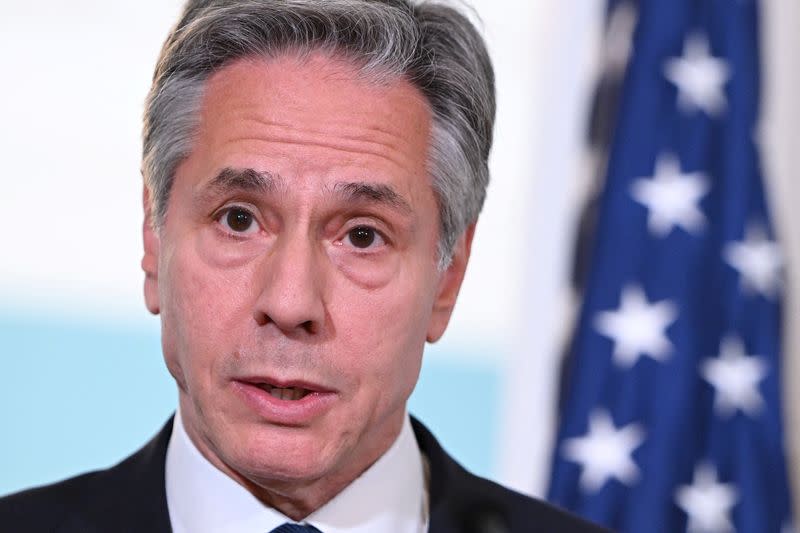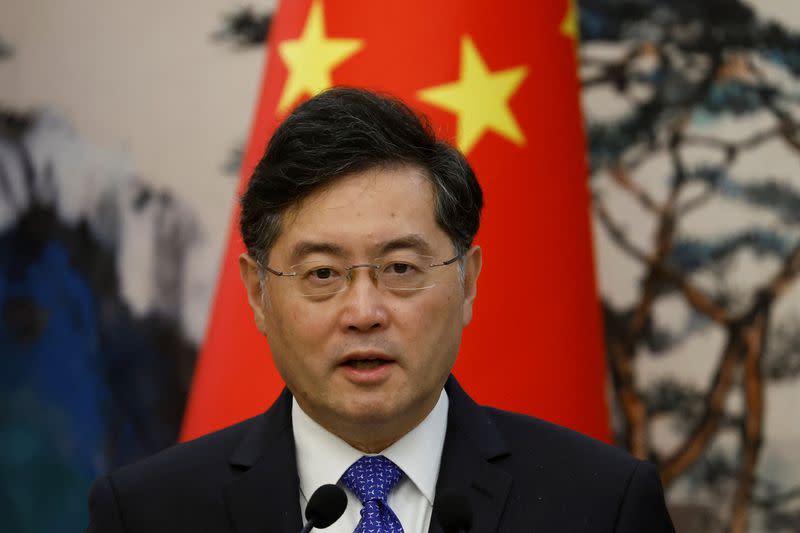China rebukes US in phone call ahead of Blinken's Beijing trip
(Reuters) -China's foreign minister Qin Gang urged the United States to stop meddling in its affairs and harming its security in a phone call with his U.S. counterpart on Wednesday, a tense preview to Antony Blinken's visit to Beijing expected in coming days.
Qin told Blinken to respect China's core concerns, such as the Taiwan issue, in an effort to arrest declining relations between the superpowers, according to China's foreign ministry.
Blinken stressed the need for communication "to avoid miscalculation and conflict" and said the U.S. would continue to raise areas of concern as well as potential cooperation with China, the State Department said in a brief summary of the call.
The top U.S. diplomat is scheduled to travel to China and Britain between June 16 and June 21, the State Department said on Wednesday, after a U.S. official last week said Blinken would be in Beijing on June 18. Chinese state media said he was due to visit China on June 18-19.
While there, Blinken will meet senior Chinese officials to "raise bilateral issues of concern" as well as other global and regional matters and "shared transnational challenges", the State Department said in a statement.
If Blinken's trip goes ahead, it will be the first visit to China by Washington's top diplomat in five years and the highest profile visit of U.S. President Joe Biden's administration, which has clashed with Beijing over issues ranging from spy allegations to a semiconductor tussle.
Blinken cancelled a planned trip to Beijing in February over a suspected Chinese spy balloon that flew over the United States. The Chinese foreign ministry has not yet revealed any other information on Blinken's upcoming trip.
Visits by U.S. officials to Taiwan, the democratically governed island that Beijing considers an integral part of China, have also magnified tensions between the world's two largest economies.
"Since the beginning of the year, Sino-U.S. relations have encountered new difficulties and challenges, and the responsibility is clear," Qin told Blinken, according to the Chinese foreign ministry's readout.
The United States should "stop interfering in China's internal affairs, and stop harming China's sovereignty, security and development interests in the name of competition," Qin added.
(Reporting bu Beijing newsroon; Writing by Bernard Orr and John Geddie; Editing by Muralikumar Anantharaman, Lincoln Feast and Alex Richardson)



